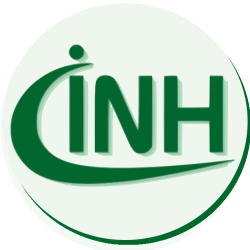This text describes the topic “Homoeopathy in German Pharmaceutical Law”.

In 1976, consultations began on a fundamental reorganisation of German pharmaceutical law. By and large, the state’s involvement in the pharmaceutical industry previously consisted of little more than a “registration” of drugs placed on the market under the responsibility of pharmaceutical manufacturers.
It had taken a long time for the legislature to consider its own responsibility in the field of drug supply. A trigger for this was the thalidomide scandal of the 1960s. This terrible process, in which neither the manufacturer nor the state authorities presented a particularly happy picture, gradually led to a growing awareness of the need for action – yet it still took 17 years before a fundamental reorganisation took place.
The basic approach of the new Medicines Act was to replace the mere registration with an “approval procedure” for pharmaceutical medicinal products and to link this to scientifically substantiated evidence of efficacy and side effects. The parliamentary and extra-parliamentary discussion dragged on for more than two years – in the end, the “Medicines Act 1978” (Arzneimittelgesetz) was passed. This marked a move away from a largely individual-empirical based therapy towards a drug therapy on as objective a basis as possible. All old remedies already registered at that time were subjected to a subsequent approval procedure, and many were no longer approved – often to the chagrin of doctors who had been using these remedies for a long time for “empirical medicine”. Even the pharmaceuticals marketed in the former GDR at the time of reunification were subject to such a subsequent approval procedure.
So far, so remarkable. So are all available medicines based on scientifically proven efficacy?
Not at all.
A very active parliamentary and also extra-parliamentary lobby succeeded in obtaining special rights for the “Erfahrungsheilkunde” ( experience medicine), to which apart from homeopathy anthroposophy and herbal medicine were added (how these three are connected is a story in itself). At that time it could be suggested to the parliamentarians in the context of the upcoming “innovations” that the “empirical medicine” of these directions pursues a completely different “approach” and that the principle of scientific proof, so to speak, bypasses the “peculiarities” of these directions. The parliamentary paper at that time speaks volumes and is quite interesting to read. [1]
Many parliamentarians may have been aware that the demand for proven effective drugs has nothing to do with “pluralism in science” and “a fundamentally different approach”, but represents nothing more than a self-evident basic consensus for health care. On the other hand, the representatives of the homeopathic and anthroposophical lobby will have been fully aware that the demand for scientific proof of efficacy would have meant the end for their remedies on the pharmaceutical market. Which, incidentally, was basically an admission that the homeopaths’ claims about the efficacy of their remedies and their great benefit to the patient were not substantially. So it was about something.
And so it came to a complete break with what had actually been the intention of the new law, in favour of what at that time was called “empirical medicine” and understood itself to be a kind of “separate medicine”. Special rules in the AMG established homeopathy, anthroposophy and phytotherapy (herbal medicine) as “special therapeutic directions” and granted them special rights. The proof of efficacy according to recognized scientific methods, actually the purpose and intention of the law for everything that wanted to trade as a drug, was waived on for these remedies.
In order to preserve the appearance of state regulation, it was decided that special commissions were to be set up at the Federal Institute for Drugs and Medical Devices (which at the time was still called differently) for the “special therapeutic directions”. For homeopathics, this is still Commission D today.
The old instrument of simple “registration” was retained for the medicinal products of these “directions”, as long as they were not to be marketed and advertised with a medical indication – as a purely administrative procedure in Division 4 of the BfArM. This department decides whether a remedy is homeopathic at all (of course the simple registration is extraordinarily “popular”) and, according to its own statements, makes this dependent on the “manufacturing process”, i.e. on the application of the principle of potentiated basic substance. In addition, safety and compliance with best practice rules during production are checked.
Those manufacturers who wish to advertise with an indication, i.e. information on areas of application, can submit an “application for approval”. The Commission D has to decide on this application. It bases its decision on “homeopathic knowledge material”, the evaluation of which is reserved for the “experts in the therapeutic direction” within Commission D. The Commission is therefore not responsible for the objective scientific evaluation of this material. On the contrary, such is suspended in favour of an “internal”, i.e. always subjective, expert assessment. In this way the “special therapeutic directions” are namely protected from the requirements of objective science, but at the same time, they also lack any possibility of invoking on this.
To clarify once again: the task of Commission D (and the commissions for the other special therapeutic directions) is not the evaluation of the approved applications of efficacy according to objective scientific criteria, as is the case for normal pharmaceuticals. No, the internal group of “experts” who have the “medical expertise in the therapeutic direction” will decide on the approval and thus the market access of homeopathic medicinal products with indications. Among themselves. In a joint consensus. According to personal perception, opinion or “experience”, according to “internal evidence” instead of intersubjective, generally valid criteria. This situation has remained unchanged since 1978 – on the homepage of Department 4 of the BfArM there is still talk of the relic of “scientific pluralism in the field of drug therapy”, which the legislation (40 years ago) had expressly provided for. Already at that time an anachronism that should not have been followed. [2]
This is the so often invoked “internal consensus” which still privileges homeopathy (and the other “special directions”) in an unacceptable way, even erecting a real protective fence around it. From the legal point of view – and in the general public’s perception – the remedies of the “special therapeutic directions” are just as much “drugs” as any pharmaceutical product that has undergone a testing and approval process that often takes years (only about eight per cent of all new developments in the pharmaceutical industry make it to approval in the first place). Homeopathy – and anthroposophy – are obviously doing their utmost to maintain this special legal regulation. This is because of their integration into the health care system and social security law depends directly on it.
There is nothing in German pharmaceutical law that is more in need of reform.
It should also not go unmentioned that the German legislator has anchored the internal consensus in another place in the law, which in principle would be suitable to open the door to any kind of pseudo-medicine: Namely in paragraph 135 SGB V, “Evaluation of examination and treatment methods”. This stated until 1997:
“New medical procedures can only be paid for by health insurance funds if their effectiveness is recognised according to the state of scientific knowledge.”
Due to an initiative from the circle of the CDU parliamentary group, some seemingly harmless words were added in 1997: This means: when approving remedies or methods for reimbursement by the health insurance system, the vote of representatives of any form of therapy would be decisive, if only enough doctors could get together who would be willing to take such a vote on their behalf:
“New medical procedures can only be paid for by health insurance funds if their effectiveness is recognised according to the state of scientific knowledge from the perspective of the respective therapeutic approach“
This is an unparalleled aberration, which of course must be reversed. The fact that the term “state of scientific knowledge” has been retained throws a telling light on the mindset of those responsible here. Regardless of the wording, we may assume that two “different” states of science were meant here – outside and inside the “respective form of therapy”. Viewed in the light of reason and the valid concept of science, this is nonsense. There are no “two sciences” – one outside and one inside a “particular therapeutic direction”. Science is not divisible. Not even by laws. At least that is how we see it.
However, the expert on whom this amendment to the law is based has had a different sight: he meant that “the (sic!) generally recognised state of medical knowledge” should be determined by the “representatives of the respective special therapeutic directions”. A concept of science that makes one shudder. And something like this is reflected in German social legislation … Truly a relapse into the Middle Ages.
Edit: Specified and extended on 5 July 2019 and 30 June 2021


8 Replies to “What does the German “internal consensus” mean?”
Comments are closed.